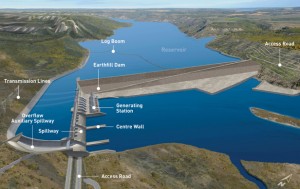“First nation” is a modern way of saying deprecated term “Indians” referring to indigenous people of Americans in Canada. For this group of people, a statute called the Indian Act was created aiming to assimilate them at first, though some of its provisions seek to protect the right of the native. That’s probably why the native don’t want to let go protections like tax exemptions while admitting its paternalism.
The Indian Act in 1876 empowered the government to keep tabs on everything about the aboriginal: their “status, land, resources, wills, education, band administration” and so forth. Unexpectedly, some issues occurred during the implementation of the first nation protection, when the government’s project conflict with first nation’s interest. For example, the BC Hydro’s $8-billion Site C hydroelectric mega project is intended to explore enery resources like wind, solar and geothermal power. However, it might harm the local’s interest by interfering in their outdoor activities like fishing, hunting or holding ceremonies. (Background: The Indian Act)
According to the Canada’s highest court, the Crown can ratify encroaching Aboriginal title lands only if there is a substantial goal. The bottom line is that no matter how profitable it might be, the project should never sacrifice Aboriginal’s interest for broader interest.
Nonetheless, while considering the PESTLE, including political, economic, social and technological, legal and environmental factors, the lifelong benefit behind the temporary loss should not be neglected. Specifically In this case, it involves almost every factor in PESTLE, mainly about political, social, and environmental elements. Although Hydro’s Site C hydroelectric project does require some political adjustment, and does need to consider the need of first nation, and does have potential to harms the ecosystem, people may need to make some concession for bigger profit. After all, these projects are thought up to provide better facility for their daily life. Therefore, moderate compromise is necessary so that numerous great resources can be made full use of and first nation’s quality of life can be improved in the long run.
References:
Isabelle Montpetit (May 30, 2011) Background: The Indian Act[online]. Available from: http://www.cbc.ca/news/canada/background-the-indian-act-1.1056988 [Accessed 06 October 2014]
Peter O’Neil (September 18, 2014) First Nation chiefs to stage Site C showdown [online]. Available from: http://www.vancouversun.com/news/First+Nation+chiefs+stage+Site+showdown/10215965/story.html#ixzz3FRVccimF[Accessed 06 October 2014]

